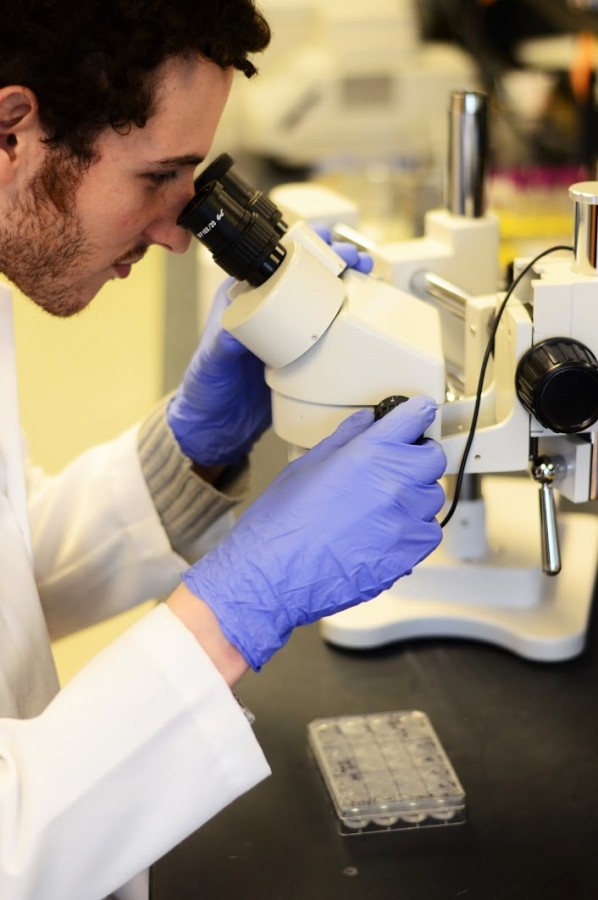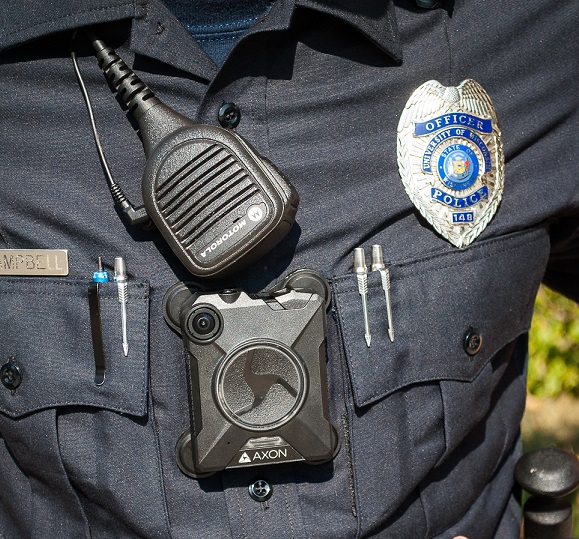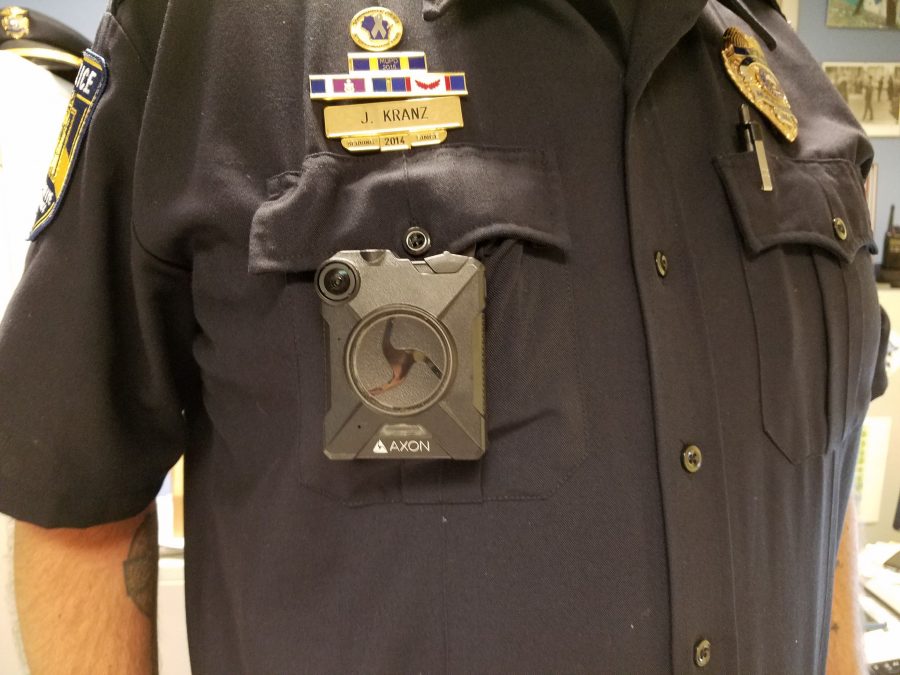Biomedical sciences professor Murray Blackmore received a $415,000 grant to work on spinal cord injuries by genetically modifying neurons to regrow nerves, specifically looking into whether cancer genes can help the regrowth.
The grant will last two years and focus on axonal growth in the spinal cord. Blackmore said there is a cell body in the brain that connects to a long fiber called the axon that runs down the spinal cord. A spinal cord injury occurs when the axon is severed.
“There is a definite link between cancer genes and nerve growth,” Blackmore said.
Blackmore said Marquette is the perfect place to conduct his research because its lab is well-funded, there are already techniques in place that allow for rapid testing of genes and it has a brand new technology called CRISPR.
Ben Callif, a graduate student who will work with Blackmore, said CRISPR has the ability to target deletion of specific genes, knocking down certain cancer-preventing genes and finding ones that can mimic growth in the brain. However, since neurons in the brain can’t divide, cancer is prevented and the growth is maximized to help regrow the axon in spinal cord injuries.
Callif said he is excited to work with the new technology. He believes this is something that could be helpful in the near future.
“The innovation of this new technology is something that has never been done before,” Callif said. “The results here could be translated to humans quickly. Usually in science, things happen very slowly, but this kind of treatment could be available within the next five to 10 years.”
Blackmore believes the research will bring new discoveries that can help scientists learn more about healing spinal cord injuries.
“I think we’re going to discover completely new genes,” Blackmore said. “And these will represent new therapeutic targets.”




